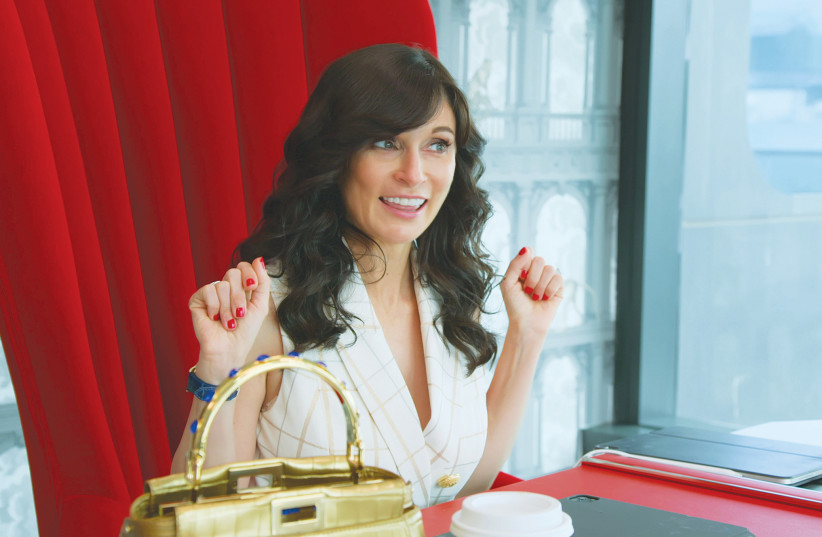The Netflix reality series My Unorthodox Life may already be a pop culture trivia question, but life goes on for its stars.
The controversial series, which followed former haredi mother Julia Haart and her children wrestle with adapting their varying levels of Jewish practice to secular New York City society, sparked a wide array of debates in different Jewish communities for its often harsh portrayal of life for women in the observant New York Jewish community
21-year-old daughter Miriam, who also left the Orthodox world, was interning at the talent media conglomerate Elite World Group, where her mother was CEO.
Now, away from the limelight, she traveled to Israel last month on Birthright and spent time afterward traveling in the country on her own.
“I haven’t been so connected to my Judaism since living in the secular world, outside of just standing up for the Jewish people when I felt like somebody needed to. Coming to Israel, and going to Jerusalem in particular, has been really impactful,” Haart told The Jerusalem Post in a call from her Tel Aviv hotel. “Seeing how Israel has been a state for Jews who were persecuted and had nowhere to go has been meaningful. Israel was always a place for them to come with open arms and learning that history was just really beautiful.”

What were the specific reasons you wanted to leave your ultra-Orthodox community?
I think sports were a big part of it. I would see boys playing basketball, soccer, football, baseball, and I wished I was a boy because of it. When I was in sixth grade, I cut my hair really short like a boy because I legitimately wanted to be a boy. And it’s not because I was trans, but because I wanted to live like the men in my community; I wanted to wear pants, play sports, sing. And the fact that I wasn’t able to be myself in the community was one of the reasons that I was able to really open my mind up to new ways of thinking.
<br>Has anyone talked to you about wanting to transition away from the ultra-orthodox community?
People message me on Instagram all the time saying they’re not happy. A lot of the time I say the best thing you can do is get an education, become financially independent, and then have the liberty to leave. I also connect them to Footsteps, which is an organization that helps people leave the ultra-Orthodox community. But yes, I get messages all the time from gay men, to queer woman, to anybody saying that they’re unsatisfied with their lives.
<br>In the show, viewers see your relationship with your younger brother Aron and your conversations about his Jewish identity. What was it like seeing him becoming more religious at a time when you had already pulled away from the ultra-Orthodox community?
I was 15 when I was going through all of that, and I think that’s a critical age where you get to start thinking for yourself more. And so for Aron, I think that he’s at that critical age right now. Whatever he decides to do, he decides to do. For me, as a woman, it was a lot harder being in the community because I was very restricted. I couldn’t be at liberty to be free, like a man is in the community. And while men are still restricted in many aspects, it’s different. At the end of the day, all I want is for Aron to be happy. And I love him, and I’ll always love him.
You grew up in a community where a lot of opportunities were closed off to you, so I’m curious how you learned how to code?
I was a very bored child because as a girl in my community, there wasn’t much to do besides gossip, and I hate gossiping. When I was 13, my brother got a computer and I would go on YouTube, and type in ‘how to’ and hit the spacebar. I learned the most random things on YouTube – breakdancing, origami, watermelon art– and one day I decided it would be cool to make an app. The first app I made took me six months and I didn’t even understand a line of code that was written. Once people were using the app, I thought I should learn how to code because it was the first time I was able to have an impact and voice as a woman in my community.
Can you talk about your NFT (non-fungible token) collection of uterus drawings called <em>Cuteri</em>?
I made it the day that the leak of the reversal of Roe v. Wade came out. I needed to channel my anger into something, so I wanted to create this collection to raise money for reproductive rights organizations and develop something to help get women involved in crypto.
